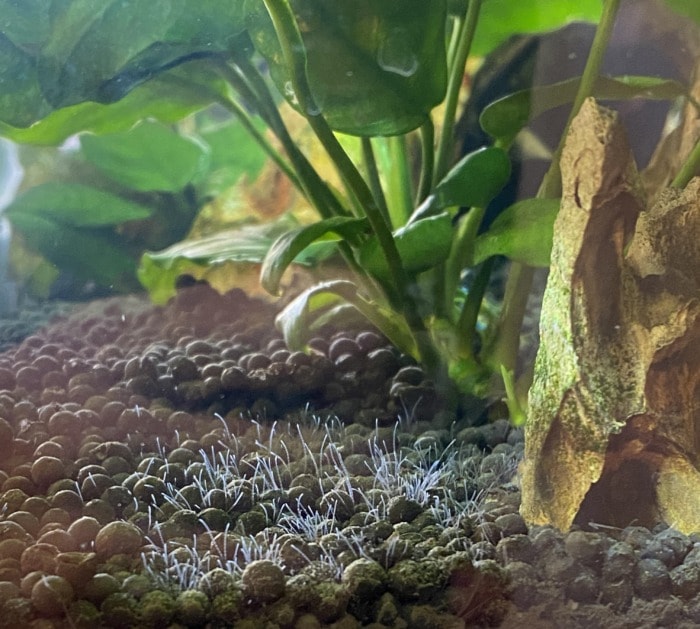What Fish Eat Detritus Worms
Aquarium enthusiasts know that managing aquarium waste can be a daunting task. The presence of detritus worms in your aquarium is a common problem, but with the right knowledge, it is an easy one to fix.
What are the pain points related to what fish eat detritus worms?
Detritus worms are not harmful to fish or other aquatic life, but their presence can be concerning to aquarium owners. They can be an indication of poor water quality, as they feed on organic waste materials that accumulate in the aquarium. If left unchecked, detritus worms can multiply rapidly, leading to overpopulation and damage to delicate plants and filter systems. They can also be unsightly; their white, thread-like bodies can be seen wriggling among the substrate. Aquarium owners want to eradicate detritus worms as quickly as possible to avoid any potential complications!
What fish eat detritus worms?
Some fish species and invertebrates can feed on detritus worms, helping to keep their populations under control. Loaches, Corydoras catfish, and Gouramis are all known to eat detritus worms, as well as some types of snails and shrimp. By adding these species to an aquarium, you can help to keep the detritus worm population in check. Additionally, cleaning the aquarium regularly can help prevent the buildup of organic waste materials and ultimately limit the number of detritus worms present.
Summary:
Detritus worms can be a common problem in aquariums, but with proper care and attention, their populations can be controlled. Several types of fish, invertebrates, and crustaceans will eat detritus worms, helping to balance the ecosystem and prevent overpopulation. Additionally, regular aquarium maintenance, including proper filter cleaning, substrate vacuuming, and water changes, can help reduce waste buildup and prevent detritus worm proliferation.
What fish eat detritus worms and how I dealt with them personally!
A few months ago, I noticed a sudden increase in the number of detritus worms in my aquarium. They seemed to be everywhere, and I didn't know what to do. After some research, I found out that Corydoras catfish, in particular, are effective at eating detritus worms.
I added a few Corydoras to my tank, and within a matter of days, I saw a significant decrease in the number of detritus worms. I also made a point of cleaning my aquarium more frequently, which helped to keep the detritus worm population in check. The combination of adding the Corydoras and regular cleaning helped solve the problem in no time.
How to prevent the proliferation of detritus worms in aquariums
One of the best ways to prevent detritus worm proliferation is to maintain cleanliness in your aquarium. Regular cleaning, including substrate vacuuming, water changes, and filter maintenance, can go a long way in reducing organic waste materials, which detritus worms feed on. Additionally, avoid overfeeding your fish, as uneaten food can quickly contribute to waste buildup.
What is the best way to eradicate detritus worms?
If you find yourself with a booming detritus worm population, there are a few effective ways to get rid of them. One method involves using a gravel vacuum or siphon to remove as much detritus and organic waste as possible from the aquarium. You can also use chemical treatments or natural remedies, like dosing with hydrogen peroxide or adding predatory fish species to the aquarium. However, it is important to remember that proper prevention methods are more effective than relying on treatments to control a problem that is already out of hand.
Question and Answer:
Q: Can detritus worms cause harm to fish and other aquatic life?
A: No, detritus worms are not harmful to fish and other aquatic life, but their presence can be a sign of poor water quality in the aquarium.
Q: Do all types of aquarium fish eat detritus worms?
A: No, not all types of fish will eat detritus worms. Loaches, Corydoras catfish, and Gouramis are known to feed on them, but other species may not show any interest.
Q: How often should I clean my aquarium to prevent detritus worm proliferation?
A: It is recommended to clean your aquarium regularly, at least once a week. This includes water changes, substrate vacuuming, and filter maintenance.
Q: Will adding predatory fish to my aquarium help control the detritus worm population?
A: Yes, adding predatory fish species, such as loaches or Gouramis, can help control the detritus worm population. However, it is important to research and choose the right species for your aquarium ecosystem to avoid any unintended consequences.
Conclusion
Managing detritus worm populations in aquariums is an essential component of good aquarium management. While detritus worms are not harmful to aquatic life, their proliferation can lead to problems down the line. Adding species that eat detritus worms, such as certain types of fish or crustaceans, and maintaining proper cleanliness in your aquarium can help prevent their populations from getting out of control.
Gallery
Easy Ways To Get Rid Of Detritus Worms In Aquariums

Photo Credit by: bing.com / worms detritus betta conditioning
Detritus Worms In Freshwater Tank - Shrimp And Snail Breeder

Photo Credit by: bing.com / worms detritus freshwater parasites aquariums pests snail aquariumbreeder
Betta Fish Eating Detritus Worms - BETTAKUS

Photo Credit by: bing.com / detritus planaria wiggly annelid
Detritus Worms: Causes & How To Get Rid Of Them

Photo Credit by: bing.com / worms detritus acuario3web quieren caracol acuario huevos aquariumsource
3 Types Of Tiny White Worms Found In A Freshwater Aquarium | Aquanswers

Photo Credit by: bing.com /
